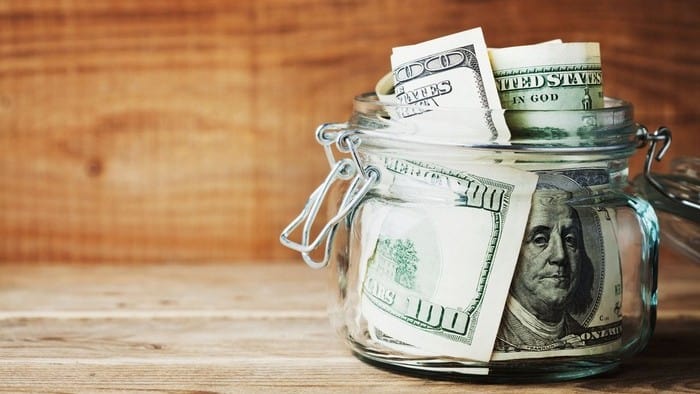This article was originally published on Fool.com. All figures quoted in US dollars unless otherwise stated.
Nationwide shutdowns because of COVID-19, coupled with a slower-than-expected reopening of the economy, have left many people spending more time at home. This global pandemic has hurt so many people financially, but a number of fortunate workers have had no changes to their income.
If you are one of the latter, you may have seen a decrease in your monthly expenses and an increase in your bank balance. Here are three reasons why you should invest that extra monthly money.
The markets are volatile
Volatility in the stock market has created a unique investment opportunity to use a dollar-cost averaging strategy. With dollar-cost averaging, you budget a certain amount of money each week or month, then use that money to buy shares of stocks or funds. From one month to the next, you get different prices for the securities you buy – some lower, some higher.
If you're left frozen by indecision, or waiting until the stock market bottoms out to take action, this method can really help you. No one really knows when a bottom will happen, and trying to time the market can prove difficult and costly.
If you invested $10,000 in an S&P 500 index fund at the beginning of 1980 and stayed completely invested throughout the end of 2018, you would have almost $660,000. If you tried to time the markets, failed, and missed out on the top 10 days of market gains, you would only have $318,000. Assuming that you're already saving money, investing it monthly will help you to avoid this pitfall, taking the guesswork out of trying to time the bottom of the stock market. It will also ensure that your money is always invested, preventing you from missing out on potential gains.
It doesn't take a ton of money
In my work as a financial advisor, I met many clients who didn't invest because they never felt as if they had enough money to start. Instead of investing small amounts when they could, they attempted to save lump sums of money – leading to them to miss out on months of market gains, or give up on their investing goals completely.
Contrary to this belief, you don't have to be rich or have a ton of money to invest. How long you invest for can be just as important as how much you invest. Consider the following two scenarios:
|
Age When You Start Investing |
How Much You Invest Annually |
Number of Years |
Annual Return Earned |
Final Amount |
|---|---|---|---|---|
|
25 |
$1,200 |
35 |
10% |
$357,752.17 |
|
35 |
$2,500 |
25 |
10% |
$270,454.41 |
If you invest less than half as much annually, but start 10 years sooner, you'll earn roughly 32% more by the time you reach age 60.
There's no time like the present. Using the money you're saving each month will allow you to get an early start to investing if you're new to it. If you're currently investing, this strategy will enable you to save and invest more money than you were before – getting you closer to meeting your financial goals.
You'll get better at planning to invest
Saving and investing money monthly is extremely important, but finding the extra money to do so isn't always easy. If you're currently spending less on leisure activities, now is a perfect time to adjust your priorities and reallocate that money toward investments.
Start by making a plan. According to a 2019 Modern Wealth Survey by Charles Schwab, having a plan leads to more regular saving. Of the people surveyed, 74% who have a financial plan invest money automatically, compared with just 25% of those who don't.
To create a plan, make a list of your monthly expenses before and after the impact of COVID-19. You can shift some of the money that you're currently saving on leisure activities like dining out or travel toward monthly investments instead. Once the pandemic ends and life as normal resumes, you can continue to enjoy these activities – you'll just be doing so within your new budget.
Once you have a plan in place, it's a straightforward and easy process. The same way that you can set up a bill to be paid each and every month, you can have money directed monthly to your investment accounts. After the money arrives, you can set up automatic orders to buy your favorite stocks, ETFs, or mutual funds.
Once you create these habits, you'll improve them over time. When you receive pay raises, you can put a portion of them toward investing, rather than entirely increasing your expenses that are within your control. You can also continue to reduce discretionary expenses so that you can save and invest more.
Uncertainty and turmoil in the world has upended our lives and made everything more difficult, but as Albert Einstein said, "In the middle of difficulty lies opportunity." Finding and benefiting from these opportunities will help you reach your long-term goals. And taking these few steps now with your disposable income while you have the ability to do so will create long-lasting saving and investing habits that will stay with you long after this pandemic is done.
This article was originally published on Fool.com. All figures quoted in US dollars unless otherwise stated.









